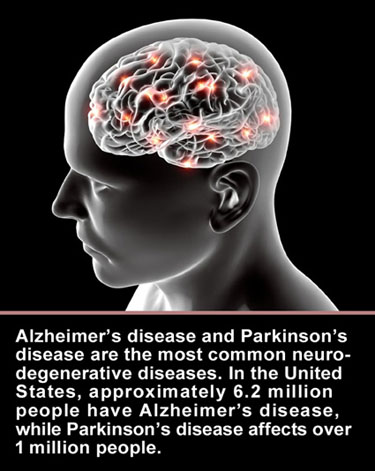In today’s toxic world, exacerbated by nutrient-deficient processed foods, obtaining critical nutrients from supplements is literally a life-saver for many people.
This was demonstrated dramatically during the Covid pandemic when study after study showed nutrient-deficient individuals had much worse outcomes when contracting the disease.
Now a new study has documented how early detection of micronutrient deficiencies can provide protection from neurodegenerative diseases. Their advice? Get tested and take a multi-vitamin/mineral.
Neurodegenerative diseases
“Neurodegenerative disease” is an umbrella term for a range of conditions which primarily affect the neurons in the human brain. A decline in cognitive functioning is a common symptom of all neurodegenerative diseases. The conditions are typically brought on by age, but not always.
Alzheimer’s disease is probably the most recognized of neurodegenerative diseases; however, the list includes multiple sclerosis, Parkinson’s disease, Huntington’s disease, multiple system atrophy, amyotrophic lateral sclerosis and prion diseases.
According to the new research, published in Nutrients in September 2023, early detection of micronutrient deficiencies was demonstrated to “significantly improve the clinical prognosis” for patients with neurodegenerative diseases.
Micronutrients have a crucial and irreplaceable role in intermediary metabolism,” the researchers wrote in the study’s conclusions. “They are an integral part of the therapy of neurological disorders for their neuroprotective, antioxidant, and anti-inflammatory effects.”
The study, a systematic review, was conducted in the Czech Republic and included 105 citations of existing research. The study was supported by the National Institute for Neurological Research and was funded by the European Union.
Micronutrients
Micronutrients are essential dietary elements, including vitamins and minerals, that are required by humans in varying amounts to facilitate normal biological functions and health.
While macronutrients—carbohydrates, protein and fats—are consumed in large quantities measured in grams, micronutrients are needed in much smaller amounts.
Daily intake for most vitamins are measured in milligram quantities, and intake for minerals are typically smaller still—measured in microgram amounts. Still most peole do not obtain an adequate intake.
Studies show nine out of 10 people are deficient in at least one nutrient, and half the population are deficient in several nutrients.
The researchers noted that the existing studies clearly established the role of long-term abnormal levels of micronutrients in the development of some neurological diseases. And, though only small amounts of micronutrients are needed, when levels are low the consequences can be severe.
“The main function of micronutrients is their catalytic effect in enzyme systems, either as cofactors or as components of metalloenzymes. Other essential roles of micronutrients are antioxidant activity, modulation of cellular immunity, and tissue healing, either directly or by using substances created through their induction,” the researchers wrote in the study findings.
Relative to neurological disorders, the researchers found the vitamins that are especially concerning when plasmatic levels are low are vitamins A, B, C, D, and E. On the mineral front, the researchers noted that selenium, copper and zinc are the micronutrients to ensure homeostasis.
The researchers noted that a multi-vitamin/mineral provided the best therapeutic potential, compared to the stand-alone vitamin options: “Multiple signalling pathways capable of boosting the antioxidative response are involved in the multivitamin approach. It is also possible that such adjuvant agents are most effective for prevention rather than treatment.”
Nutritional testing saves lives
While the current study highlights nutrient deficiencies as biomarkers for cognitive disorders, these same deficiencies are are also biomarkers for many other health conditions—including heart disease, diabetes and cancer.
Nutritional testing that identifies these biomarkers can equip the consumer with the knowledge they need to make appropriate lifestyle changes and specific nutrient intake adjustments. Nutritional testing, such as the Nutrients Rx Bloodwork & Questionnaire by Optimal Health Systems can provide comprehensive lab work to test more than 200 biomarkers.
In the U.S., “healthcare” is concentrated on treatment of symptoms, with only 3% of healthcare spending going towards preventative health.
If the media and medical establishment highlighted the benefits of preventative health—including testing for nutritional deficiencies—dramatic changes would occur in the health and life expectancy of average Americans.
A 2022 report produced by the Council for Responsible Nutrition has detailed how tens of thousands of lives—and hundreds of billions of dollars—could be saved by simply expanding the use of the most-needed nutritional supplements. If the level of testing was expanded, the benefits would be incalculable.
If you want to learn more about identifying your own nutritional deficiencies and biomarkers with lab testing, click the banner ad on this page.
– – –
Sources: Nutrients, CRNusa.org., Wikipedia/Neurodegenerative Disease.



